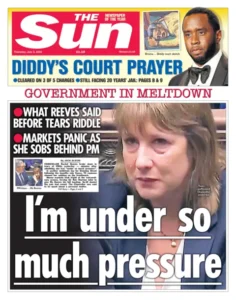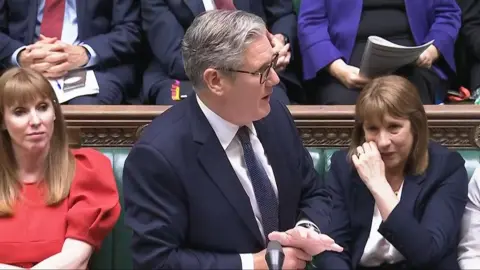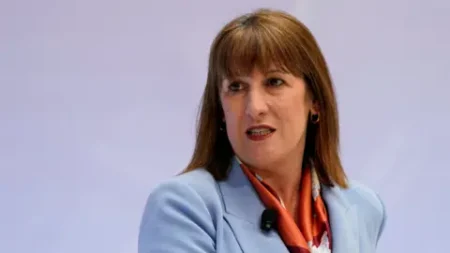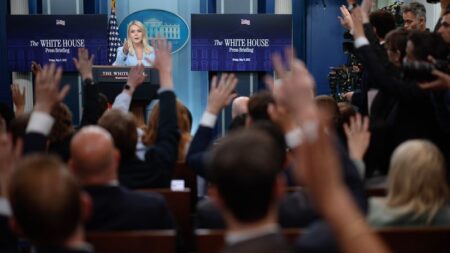In a recent session of Prime Minister’s Questions (PMQs), Chancellor Rachel Reeves was visibly emotional, an appearance that drew significant attention and led to a robust defense from Downing Street. Reeves was seen wiping tears away as she faced intense scrutiny from her opponents, particularly Kemi Badenoch, the Tory leader. Badenoch’s criticisms centered on Prime Minister Sir Keir Starmer’s latest reversal on welfare reforms, deeming it a significant blow to the Chancellor’s financial plans, which rely heavily on these reforms.
At the heart of this exchange was a critical questioning of Reeves’ position within the Labour government, particularly with the upcoming elections in sight. Badenoch pointedly asked Sir Keir for assurance regarding Reeves’ future as Chancellor, implying that the government’s changing stance on fiscal policy may necessitate tax increases, which could unsettle public confidence. The Prime Minister, however, danced around the question, opting not to affirm Reeves’ place in the cabinet while stating that Badenoch would not retain her position.
In defense of Reeves, Downing Street clarified that she has the Prime Minister’s “full backing,” dismissing concerns about her role as unfounded. The Prime Minister’s press secretary emphasized that Sir Keir has consistently expressed his confidence in Reeves. This support comes at a delicately challenging time, especially as Sir Keir had to retract significant parts of the welfare legislation to avoid backlash from his own party members.
Further fueling the tension, Badenoch claimed that Labour MPs were suggesting Reeves might be on the chopping block—a sentiment that was echoed with claims of her being a “human shield” for the government’s failings. During this verbal duel, Reeves’ emotional state drew attention; her spokesperson attributed her tears to “a personal matter,” which sparked further speculation and scrutiny regarding her wellbeing and state of mind amidst the political pressure.
Once the session concluded, there were signs of solidarity within the Labour ranks, with Ellie Reeves, Rachel’s sister and a fellow Labour MP, publicly supporting her by holding her hand as they exited the Commons. This moment underscored the strain that the political discourse can have on personal relationships and individual emotions even among colleagues who are navigating the tumultuous waters of political debate.
Additionally, tensions extended beyond the immediate surface of the debates. Many of Reeves’ parliamentary allies insinuated that her distress stemmed from an earlier encounter with the Speaker of the House of Commons, Sir Lindsay Hoyle, who may have been brusque during their interactions. This potentially unfavorable interaction occurred just before PMQs, adding to the already charged atmosphere surrounding her legislative duties that day.
Despite the tumultuous environment, Sir Keir Starmer maintained that no Chancellor or Prime Minister can predict future budgets with certainty, reflecting the inherently unstable nature of political responsibilities tied to fiscal policies. However, critics within the party are voicing concerns that the ongoing welfare debates and fluctuating stances might erode the fiscal stability Reeves aimed to achieve through her policies.
As the Labour party grapples with internal and external pressures, the outcome of these political maneuvers will be significant as they approach the upcoming elections. The discourse surrounding Reeves, her emotional display, and the government’s approach to welfare reforms showcases the complex interplay of personal emotions and political strategy in contemporary UK politics. While Downing Street reassures her position, the questions linger about how the public and her peers perceive her ability to navigate these critical challenges ahead.











